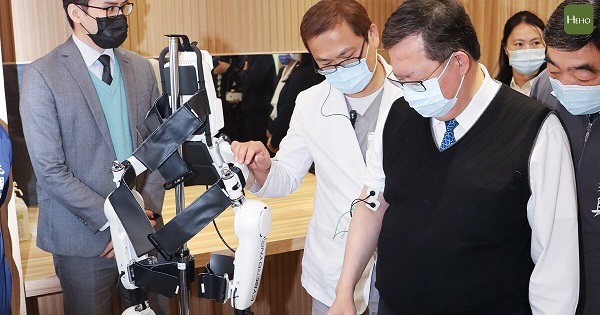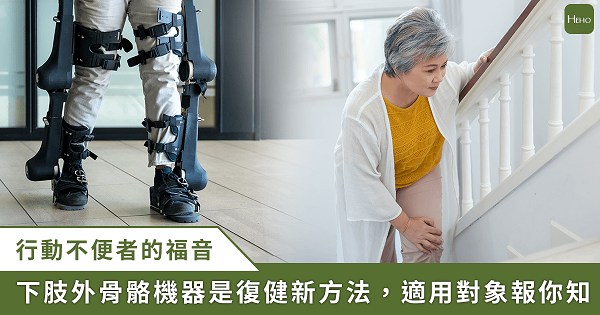Mr. Lin, in his 70s, suffered a cervical spinal cord injury and underwent a year of traditional rehabilitation therapy. Although he could stand and walk about 5 meters with the help of a walker, his limited muscle strength led to knee pain, restricting his rehabilitation progress. After evaluation and suggestions from his therapist, Mr. Lin decided to try the latest lower limb exoskeleton robot combined with rehabilitation sessions. On his first use, he could walk over 60 meters using a forearm walker and completed four rounds, rekindling his hope of walking again.  Rehabilitation robots can assist patients in completing their "intended" movements through sensors. (Photo/Provided by Heho Health)
Rehabilitation robots can assist patients in completing their "intended" movements through sensors. (Photo/Provided by Heho Health)
After six months of intensive training, Mr. Lin can now easily walk over 500 meters using the lower limb exoskeleton robot without needing a cane; even without the robot, he can walk over 200 meters using a single crutch. He feels very satisfied with his progress, regaining his confidence and hope in life. This improvement is attributed not only to the advanced technology of the lower limb exoskeleton robot but also to the professional assistance of physical therapists, who help him achieve the best results during rehabilitation.
The lower limb exoskeleton robot supports weak lower limbs to train movement and is commonly used in gait training for patients with stroke, brain injuries, spinal cord injuries, and long-term bedridden conditions. Therapists indicate that this rehabilitation method can significantly improve patients' trunk stability, lower limb strength, cardiopulmonary endurance, and gait correction, enhancing their quality of life. During the use, patients can train through simulated real-life scenarios, helping them regain mobility and eventually restore their health and hope.







